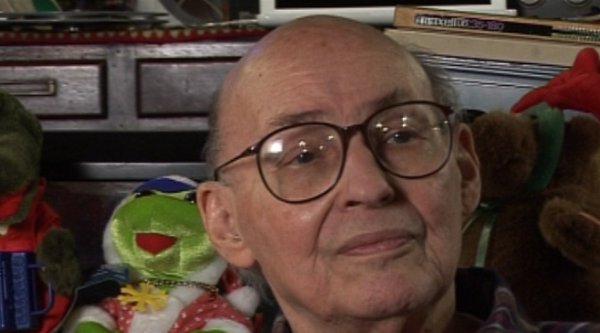NEXT STORY

The importance of my undergraduate classes at Harvard
RELATED STORIES

NEXT STORY

The importance of my undergraduate classes at Harvard
RELATED STORIES


|
Views | Duration | |
|---|---|---|---|
| 61. Developing programs that could understand written questions | 2174 | 02:22 | |
| 62. AI programs 'devolving' from calculus to geometry | 2298 | 03:11 | |
| 63. Why can't machines do things that babies can? | 2244 | 03:39 | |
| 64. Facial recognition machines | 1973 | 01:13 | |
| 65. How computers developed at MIT | 2611 | 02:55 | |
| 66. The conflict between AI research and computer science | 2580 | 01:58 | |
| 67. What I think is wrong with modern research | 2708 | 02:32 | |
| 68. Lowell Wood's novel idea for launching a space station | 2437 | 03:37 | |
| 69. The importance of my undergraduate classes at Harvard | 2573 | 01:26 | |
| 70. My undergraduate thesis in fixed point theorems | 3573 | 04:26 |


Lowell Wood had a wonderful idea for launching… things that were fairly practical. Suppose you wanted to make something like the space station. His idea was very simple. You… you drill a hole that’s… I think it doesn’t have to be very deep – maybe a mile – that’s a pretty big hole, and you put a hydrogen bomb… a little hydrogen bomb in it. And then you have… you fill it with water, about… I forget how much they… the Livermore people worked a lot of this out, and then you have this cartridge which is the… the space station. And the space station is made to fold up and just imagine that it folds up so it’s solid steel. Well, it turns out that if you make a solid packed station with… without any holes in it, it can stand 10,000 g's easily; that is, you can push it very hard and it won’t break, it’ll just rebound a little.
So, here we have a hydrogen bomb, a column of water which turns into steam and it propels this… this payload, so it’s a gun. Now Lowell claims that… that this hydrogen bomb will be completely sealed after it go… goes off. It’ll make... it’ll convert the surrounding earth into a spherical melted glass cavern and no… no harm will ever come from it. It won’t leak because it’s all melted and sealed and, of course, that might be wrong; and the whole thing only costs a few million dollars really because it’s like an oil well only it’s a big hole instead of… which might be easier than a small one in some ways.
And then you need some way to get the thing into orbit and so it won’t just come down again, so there has to be some kind of secondary system which is much more expensive which pushes it sideways so it goes around. Maybe it’s another couple of hydrogen bombs and that’s all you need and since you’re outside the atmosphere they won’t do any harm and hydrogen bombs only cost a few million dollars each. So here was a system that builds a huge space station for… for pennies or rather pennies per pound, so they worked all that and everybody said no. I forget why I’m telling this story.
[Q] Well, it’s very interesting. How does the solid space station… does it unpack when it gets up there? Is that right?
Yes, you… just like the… the Hubble Telescope… of course, you… people come out and unpack it for the Hubble, but it’d be the same here; it would just… it just has a lot of hinges and parts and once you’ve got it into orbit then… then you send up a shuttle with people to… people can unpack it so… and they, you know, it has enough food for several years and everything’s packed in there and it sounds pretty practical.
Marvin Minsky (1927-2016) was one of the pioneers of the field of Artificial Intelligence, founding the MIT AI lab in 1970. He also made many contributions to the fields of mathematics, cognitive psychology, robotics, optics and computational linguistics. Since the 1950s, he had been attempting to define and explain human cognition, the ideas of which can be found in his two books, The Emotion Machine and The Society of Mind. His many inventions include the first confocal scanning microscope, the first neural network simulator (SNARC) and the first LOGO 'turtle'.
Title: Lowell Wood's novel idea for launching a space station
Listeners: Christopher Sykes
Christopher Sykes is a London-based television producer and director who has made a number of documentary films for BBC TV, Channel 4 and PBS.
Tags: Lawrence Livermore National Laboratory, Lowell Wood
Duration: 3 minutes, 38 seconds
Date story recorded: 29-31 Jan 2011
Date story went live: 12 May 2011